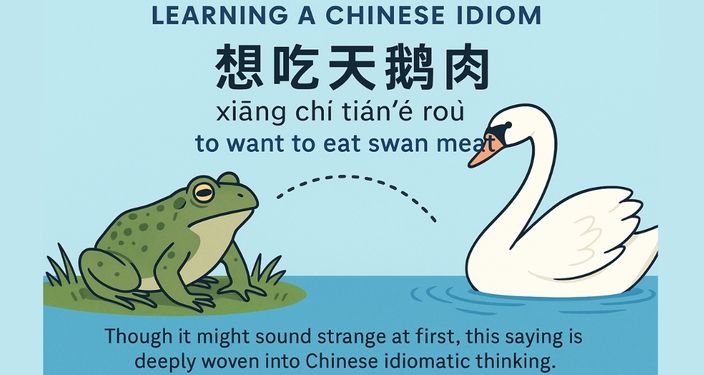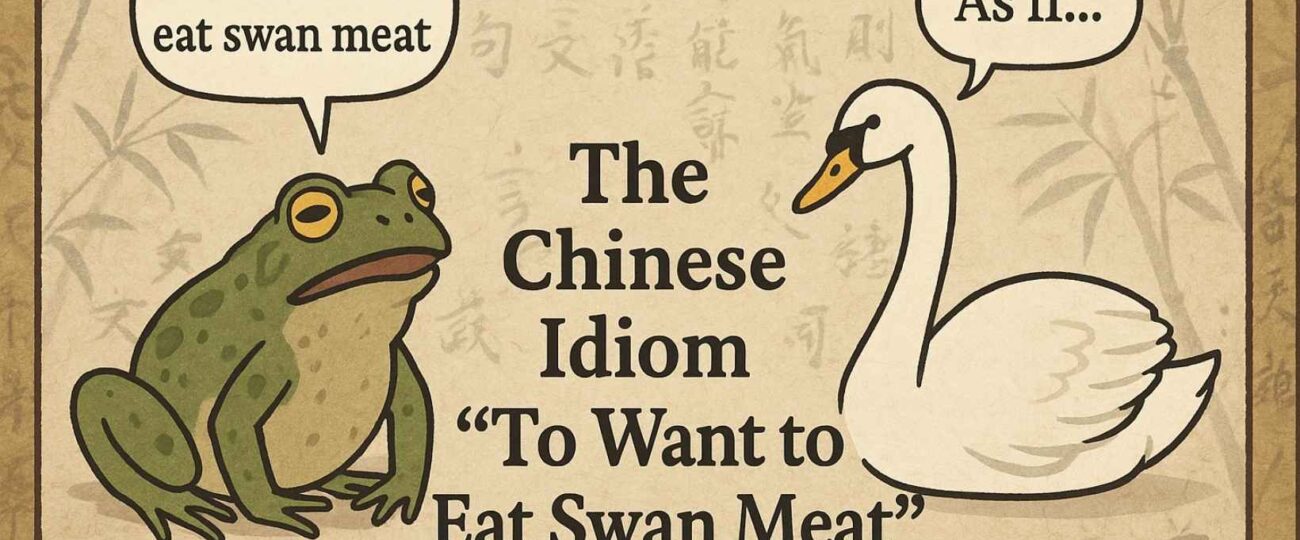As you learn Chinese online, your online Chinese teacher will eventually introduce you to more than just common vocabulary—they’ll guide you into idioms and expressions that carry rich cultural flavor. One such phrase is “想吃天鹅肉” (xiǎng chī tiān’é ròu), which literally means “to want to eat swan meat.” Though it might sound strange at first, this saying is deeply woven into Chinese idiomatic thinking and reveals much about how ideals, desires, and self-awareness are expressed in the language.
Unlike in some Western traditions where the swan is primarily a symbol of purity, love, or artistic grace, in Chinese culture the swan—天鹅 (tiān’é)—is more often associated with beauty, rarity, and unattainability. The idiom “癞蛤蟆想吃天鹅肉” (lài háma xiǎng chī tiān’é ròu), literally “a toad wants to eat swan meat,” uses stark contrast to make a point: someone is aiming far beyond their station or dreaming of something clearly out of reach.
This idiom often appears in social situations involving unbalanced relationships or unrealistic ambition—for instance, when someone from modest circumstances tries to pursue a person considered far more attractive, wealthy, or well-connected. It can also be used to mock someone whose desires are seen as disconnected from their reality, especially in romantic or social contexts. That said, depending on the tone, it can be playful, critical, or gently self-deprecating.

The expression probably developed from a mix of metaphor and social observation. In traditional China, swans were rare and elegant, creatures of noble bearing that didn’t mingle with the common world—much like how idealized partners or goals may seem impossibly distant. The toad, in contrast, is an earthy, clumsy animal—symbolizing someone ordinary or unrefined reaching for what they cannot obtain. The beauty of the idiom lies in its imagery, and also in the cultural honesty it reflects: a certain humility, a recognition of limits, but also, sometimes, a quiet humor about one’s own hopes.
This is the kind of cultural-linguistic nuance that schools like GoEast Mandarin help students appreciate. Idioms like this are more than language practice—they’re keys to understanding how Chinese people express values, modesty, and critique in indirect but vivid ways.
Today, the phrase still appears in casual speech, online comments, and even dating culture. While it can sting when used mockingly, it also reminds us of the poetic way Chinese uses animals and metaphors to express human nature. In “wanting to eat swan meat,” we don’t just see desire—we see aspiration, distance, and the careful dance between dreams and reality.
See Also: The Origin and Development of “您” (Honorific) in Chinese










